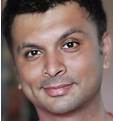By Kollengode S Venkataraman
e-mail:Â ThePatrika@aol.com
There is a wide perception in the West that Indians are “traditional†and “orthodox†and very caste-conscious when it comes to marriage. One proof they cite are the matrimonial ads in Indian dailies — for that matter also in Pakistani and Bangladeshi dailies — in which the grooms’ and brides’ parents seek alliance from parents of potential brides and grooms respectively, identifying their religion, sects and subsects, caste and subcastes, native tongue, food habits, and so on.
Muslims, Christians, and Sikhs are no exception in this even though Christianity, Islam and the Sikh faith do not nominally recognize caste. The caste system may have a Hindu origin, but today, in practical terms, it pervades the entire South Asian population across all faiths. However, India is also rapidly changing. This is obvious to those willing to see and understand the details of today’s marriages not only among the upper crust and its middle class, but also among the working poor. In this milieu, any departure is a welcome change.
Given this context, one recent matrimonial ad in a Mumbai tabloid drew wide attention for its departure from the norm, and went viral. This unique matrimonial ad invited proposals for a gay Iyer man (Iyer is a stereotypical name of a Tamil Brahmin subsect) from potential gay grooms. Later, the man’s identity was revealed: Harrish Iyer. See the picture.
Incidentally, South Indian Tamil Brahmins are caricatured in the media all over India as orthodox, religious, traditional, old-fashioned, subservient, compliant… and not courageous, daring and not entrepreneurial. The famous examples in my younger days (1960s and 1970s) were the well-known Ranganathan character in the Hindi film Rajni Gandha; and the actor Mehmood’s tasteless slap-stick caricaturing of Tamil Brahmins in Hindi films.
However, people outside the Tamil Brahmins’ group also would grudgingly acknowledge privately this: these Brahmins, in general, are studious, hardworking, diligent, and single-minded in their pursuits. They are also self-effacing and low-key in their public persona and with their higher-ups. The Tamil Brahmins are also reviled subtly and not-so-subtly by outsiders for these very reasons. The powerful Brahmin-hating Dravidian Movement in Tamil Nadu in the 1940s, 50s, and 60s portrayed Tamil Brahmins as wily, crafty and diabolical; and also as the root cause for all evils in the Tamil society.
In any case, the matrimonial ad read, “Seeking 25-40, well- placed, animal-loving, vegetarian groom [for a man] (36, 5’11”) who works with an NGO, caste no bar (though Iyer preferred).†This matrimonial ad from a gay young man from among the tradition-bound South Indian Brahmins seeking alliance with a gay man, understandably, went viral. Within a day or two Harrish Iyer, got over 70 proposals.
The Hindustan Times reported (www.tinyurl.com/Gay-Iyed-Wedding-Ad) Iyer saying, “Most proposals … … were from men from the Iyer community, given the preference mentioned in the ad… … Proposals had come from all over world, including from Australia, the UK, the US and even Saudi Arabia. Apart from Iyers, many Gujaratis and Muslims also expressed interest… … Some proposals said they were fine with all my preferences and wanted to marry me, but were meat-eaters. An interesting proposal came from Abu Dhabi, where a man offered me his palatial house to live in after marriage.â€
Though the ad was radical in every measure, there was also a traditional, and simultaneously, a very radical Indian twist to this ad. The full ad reads thus: “Seeking 25-40, well placed, animal-loving, vegetarian groom for my son (36, 5’11”) who works with an NGO, caste no bar (though Iyer preferred).†(Emphasis mine).
After all, the ad, in one fundamental measure, was not radical at all, but very, very traditional. For, it was placed, not by Harrish Iyer himself courageously seeking a same-sex partner in marriage, but by Harrish’s mother Padma Iyer, who supports her son’s gay identity and even walked with him in the Queer Azadi Mumbai parade. At another level, it was as radical as it gets anywhere in the world — a mother placing a matrimonial ad seeking proposals from other gay men for her gay son.
We wish Harrish Iyer well in his life whoever he chooses to be his partner and wherever he chooses to live. And we hope that in his married life with a gay partner of his choice — and also his mother’s choice, if you go by the ad — the Indian tradition stops with his mother helping him choose his partner. Ok, give her some slack: Maybe, with her finalizing Harrish Iyer’s wedding details.
If it extends beyond his traditionally arranged, yet very radical gay Indian marriage, it has the potential of his mother’s shadowy presence interfering — and even wrecking — his gay marriage, as it happens so often in traditionally arranged straight Desi marriages.

